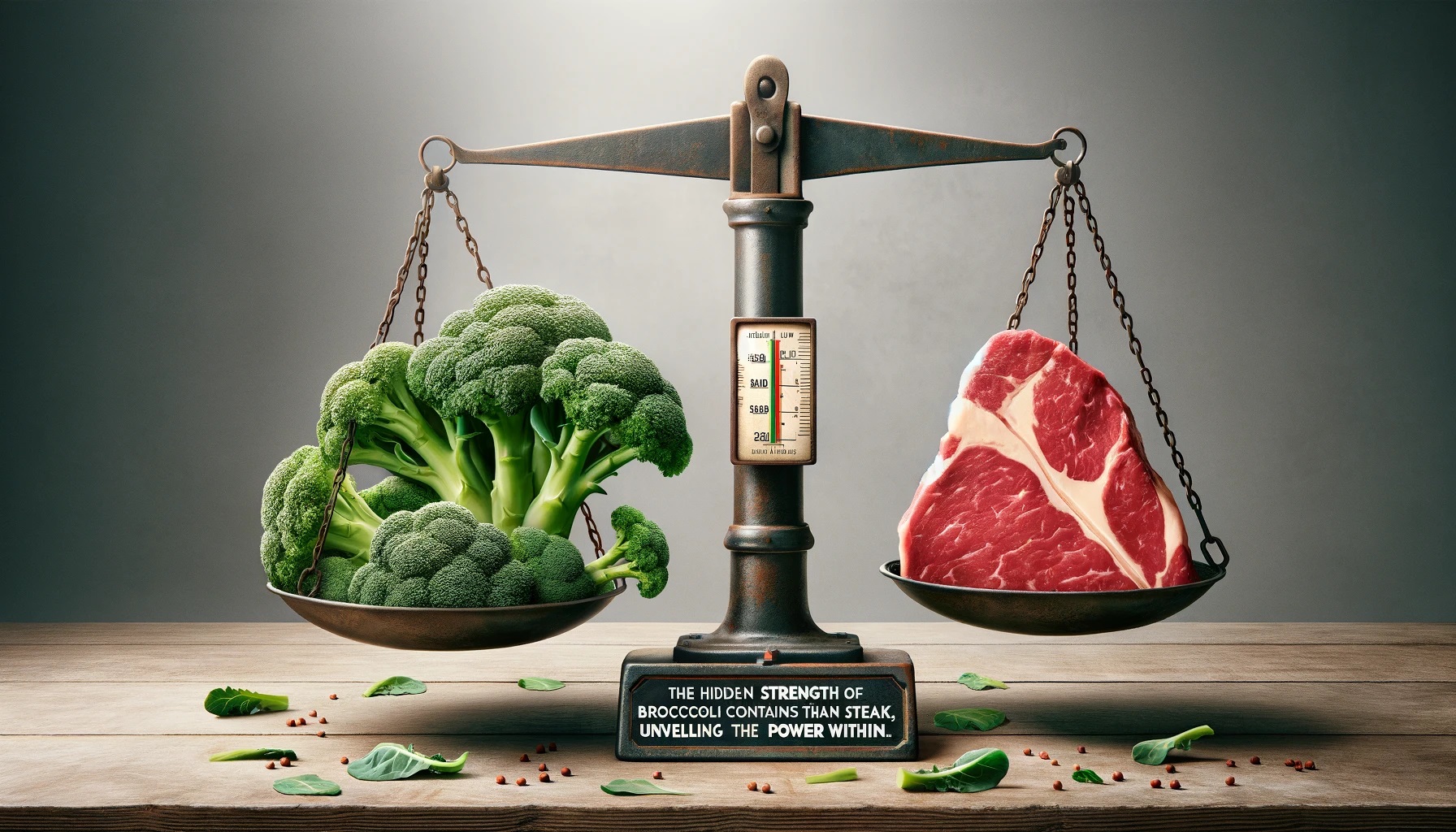· nutrition · 15 min read
Boosting Antioxidant Defenses Naturally
Discover how to naturally enhance your body's antioxidant defenses, combating oxidative damage and promoting overall health.

In This Post
The Fact Why Should I Care How To Put In Action Start Tomorrow Guide How does it effect my ability to focus How does it impact my daily life How does it help me make friends How does it help me manage stress How does it effect my mood Summary: Remember Refresher Checklist The Full Research Article CitationsPrint Out The Tomorrow Checklist!
Sign up for our newsletter and receive a copy today, so that, you can start tomorrow! Or the next day, or the day after that. I forget everything and starting things is hard at least for me so these checklists are godsend.
Print Out The Remember Refresher Checklist!
Sign up for our newsletter and download your own copy of the Remember Refresher Checklist, so that, you can easily put it on your fridge and help you stay on target towards your WHY. Every little bit helps.
Introduction to Oxidative Stress and Antioxidants
Understanding Oxidative Stress and Its Impacts
Oxidative stress might sound complex, but it’s a situation we all face due to the hustle and bustle of daily life. Imagine your body as a bustling city, and within it, there are molecules known as free radicals. These are the city’s waste products, derived from both external pollution (like cigarette smoke or toxins) and internal processes (like digestion). Normally, the body can handle them, breaking down and neutralizing these rogue molecules.
However, when there are too many free radicals and not enough neutralizers (antioxidants), damage ensues. This is oxidative stress. It’s like having too much garbage in the city and not enough waste management teams. The excess rubbish begins to impact the city negatively, which in our case translates to damage within our cells. This can contribute to aging and various diseases including heart problems, diabetes, and cancer.
The Role of Antioxidants in Combating Oxidative Damage
Antioxidants are the superheroes in the narrative of our body. They roam the streets (our body system) neutralizing the free radicals (the waste) before they can cause harm to the buildings and city infrastructure (our cells and tissues).
You might be wondering, “Where do these superheroes come from?” They are found in the foods we eat, especially fruits, vegetables, nuts, and whole grains. These dietary superheroes can also be produced by our body but incorporating antioxidant-rich foods enhances our defense mechanism.
The primary role of antioxidants is to prevent and repair the damage caused by oxidative stress. They donate electrons to free radicals without becoming destabilized themselves, effectively neutralizing the threat. The various types of antioxidants, such as Vitamin C, E, and beta-carotene, each have unique functions and benefits, making it important to consume a diverse and healthy diet.
To ensure you’re giving your body the best antioxidant defense, consider incorporating the following into your lifestyle:
- ü•¶ Eat a variety of fruits and vegetables daily
- ‚òï Opt for green tea over sugary drinks
- üç´ Choose dark chocolate in moderation
- üçΩ Include nuts and seeds in your diet
- üïí Limit exposure to environmental pollutants whenever possible
This simple checklist can help you combat oxidative damage and support your body’s natural defense systems. Remember, a little change goes a long way in terms of health and wellbeing.
The Power of the Body’s Natural Antioxidant System
In our ongoing battle against oxidative damage inflicted by free radicals, our body isn’t defenseless. It’s equipped with a powerful arsenal: natural antioxidant enzymes. These enzymes play a crucial role in our antioxidant defense mechanism, neutralizing harmful reactive oxygen species and reducing oxidative stress indicators.
An Overview of Natural Antioxidant Enzymes
At the heart of our cellular defense against oxidative stress lie antioxidant enzymes. Unlike dietary antioxidants that we obtain from food, these enzymes are produced within our bodies. They include Superoxide Dismutase (SOD), Glutathione Peroxidase, and Catalase, each with its unique method of action against free radicals.
The Importance of Superoxide Dismutase (SOD), Glutathione Peroxidase, and Catalase
- Superoxide Dismutase (SOD): This enzyme is like the first line of defense, transforming the superoxide radical, a common reactive oxygen species, into oxygen and hydrogen peroxide.
- Glutathione Peroxidase: This enzyme steps in to reduce hydrogen peroxide into water, preventing potential harm.
- Catalase: Similarly, catalase breaks down hydrogen peroxide into water and oxygen, making it an essential part of the antioxidant defense mechanism.
These enzymes collectively form a robust network, safeguarding the cells from oxidative damage and supporting overall health.
How the Body Produces and Utilizes These Enzymes
Our bodies produce these vital enzymes through complex biochemical processes. The synthesis and activity of these enzymes can be influenced by various factors, including diet, lifestyle, and environmental exposures. Enhancing the body’s antioxidants naturally involves supporting the optimal function and production of these enzymes.
- Checklist for Supporting Natural Antioxidant Enzyme Production:
- Eat a mineral-rich diet high in manganese, zinc, and selenium.
- Engage in regular physical exercise, which can boost antioxidant enzyme activity.
- Avoid excessive exposure to pollutants and toxins that can deplete antioxidant enzymes.
- Consider nutritional support for antioxidants through supplements if necessary.
- Manage stress levels, as chronic stress can impact antioxidant enzyme levels.
By understanding and nurturing our body’s natural antioxidant system, we can enhance our cellular defense against oxidative stress and contribute to our overall well-being. This holistic approach, valuing both nutritional and lifestyle factors, provides a strong foundation for antioxidant defense and long-term health.
Essential Minerals for Antioxidant Enzyme Function
The intricate mechanism of our body’s antioxidant defense is not just dependent on the antioxidant enzymes like superoxide dismutase (SOD), glutathione peroxidase, and catalase but also heavily relies on several key minerals. Manganese, zinc, and selenium stand out for their vital roles in enhancing and aiding the antioxidant enzyme‚Äôs function. Without these minerals, our body would struggle to combat oxidative damage caused by free radicals.
The Crucial Role of Manganese, Zinc, and Selenium
These minerals act as cofactors for the antioxidant enzymes, meaning they help these enzymes to function more effectively. For instance:
- Manganese is especially important for the activity of superoxide dismutase (SOD), an enzyme that plays a crucial role in protecting our body from the harmful effects of free radicals.
- Zinc is necessary for the proper functioning of catalase, an enzyme that helps in converting hydrogen peroxide, a reactive oxygen species, into water and oxygen, thereby reducing oxidative stress.
- Selenium is a key component of glutathione peroxidase, which helps reduce the damage caused by lipids in cell membranes and thereby protects cells from oxidative damage.
Without adequate levels of these minerals, our antioxidant defense mechanism could be compromised, leading to increased oxidative damage and potential health issues.
Mineral-Rich Foods and Their Benefits
Eating a diet rich in these essential minerals can help ensure our body’s antioxidant system functions optimally. Some examples of mineral-rich foods include:
- Manganese: Whole grains, legumes, nuts, and leafy green vegetables.
- Zinc: Meat, shellfish, dairy products, nuts, and seeds.
- Selenium: Brazil nuts, seafood, meat, and cereals.
Incorporating these foods into your diet not only supports your antioxidant defense but also brings a variety of other health benefits, such as improved immune function and enhanced metabolic processes.
Optimizing Mineral Intake for Antioxidant Support
To optimize the mineral intake for supporting the antioxidant enzymes, it’s essential to focus on a balanced diet that includes a variety of foods. Here’s a checklist that can help ensure you’re getting enough of these essential minerals:
- Include a mix of plant-based sources like nuts, seeds, and leafy greens to ensure adequate manganese and zinc intake.
- Add a small serving of Brazil nuts to your diet regularly for a selenium boost‚Äîbut not too much, as they’re very high in selenium.
- Consider incorporating seafood into your meals twice a week to help with selenium and zinc intake.
- For vegetarians or those who prefer not to eat meat, exploring fortified foods or supplements could be a way to ensure enough zinc and selenium intake.
By paying attention to the consumption of manganese, zinc, and selenium through a balanced and varied diet, we can significantly enhance our body’s natural defense against oxidative stress. This, in turn, helps maintain optimal health and reduces the risk of oxidative damage, leading to a strengthened antioxidant defense mechanism.
Dietary Strategies to Enhance Natural Antioxidant Defenses
Adopting dietary strategies to bolster your body’s natural antioxidant defenses is a powerful way to combat oxidative damage and maintain optimal health. This section delves into foods rich in antioxidants, how to integrate mineral-rich foods into your diet, lifestyle choices that augment antioxidant levels, and a note of caution on antioxidant supplements’ overconsumption.
Foods High in Antioxidant Properties and Their Benefits
Consuming a diet abundant in antioxidant-rich foods is a cornerstone strategy. These foods include fruits like blueberries, strawberries, and oranges; vegetables such as kale, spinach, and broccoli; nuts like almonds and walnuts; and seeds such as chia and flax seeds. The antioxidant properties of these foods help neutralize free radicals, reducing oxidative damage and its associated risks.
- Blueberries: Laden with antioxidants, including flavonoids that enhance brain function and heart health.
- Spinach: Offers high levels of lutein and zeaxanthin, two potent antioxidants essential for eye health.
- Walnuts: Full of alpha-lipoic acid, a premium antioxidant that fights inflammation and oxidative stress.
Incorporating these foods into your daily diet plays a pivotal role in enhancing the body’s antioxidants, aiding in the defense mechanism against oxidative stress.
Incorporating Mineral-Rich Foods Into Your Diet
Minerals like manganese, zinc, and selenium are crucial for the proper function of antioxidant enzymes such as Superoxide Dismutase (SOD), Glutathione Peroxidase, and Catalase. To optimize your mineral intake:
- Selenium: Found in Brazil nuts, fish, and eggs. Just a few Brazil nuts can provide your daily selenium needs.
- Zinc: Present in meat, shellfish, legumes, and seeds. It is vital for immune function and antioxidant enzyme activity.
- Manganese: Abundant in whole grains, leafy vegetables, and tea. It plays a crucial role in the activation of antioxidant enzymes.
Checklist: Integrating Antioxidant and Mineral-Rich Foods Into Your Diet
- Start your day with a berry-rich smoothie or oatmeal topped with a mix of seeds.
- Opt for leafy green salads or steamed vegetables with nuts for lunch.
- Snack on a small handful of Brazil nuts or almonds mid-day.
- Include lean protein sources like fish or legumes, rich in zinc, in your dinners.
Beyond Diet: Lifestyle Choices That Support Antioxidant Levels
Beyond dietary adjustments, lifestyle changes can significantly affect your antioxidant levels. Engaging in regular physical activity, reducing stress through mindfulness or yoga, and ensuring adequate sleep all contribute to enhancing your body’s natural antioxidant defenses.
- Regular Physical Activity: Exercise boosts antioxidant enzyme levels, improving your body’s ability to combat oxidative stress.
- Stress Reduction: Chronic stress can deplete antioxidant levels. Practices like mindfulness and yoga help manage stress, indirectly supporting antioxidant defenses.
- Adequate Sleep: Quality sleep is essential for the body’s regeneration processes, including maintaining optimal antioxidant levels.
Caution: The Potential Downsides of Overconsumption of Antioxidant Supplements
While boosting your antioxidant intake through diet and lifestyle is beneficial, reliance on antioxidant supplements should be approached with caution. Excessive consumption of these supplements might disrupt the body’s natural balance, sometimes leading to pro-oxidant effects‚Äîwhere instead of combating, they contribute to oxidative stress. Always consult healthcare professionals before starting any supplement regimen to ensure it aligns with your health needs and goals.
In summary, reinforcing your body’s natural antioxidant defenses through a balanced diet rich in antioxidant and mineral-laden foods, coupled with healthy lifestyle choices, forms an integrated approach to mitigating oxidative damage. Remember, the key to antioxidant support lies not in supplements, but in the synergy of diet, exercise, and stress management techniques.
FAQs (Based on “People Also Ask” Section from Google)
Oftentimes, understanding the complexities of our body’s defenses against oxidative stress can be quite challenging. To make this easier, here are some frequently asked questions that provide clear and helpful insights into how you can naturally support your antioxidant defenses.
What Are the Signs of Oxidative Stress in the Body?
Oxidative stress, caused by an imbalance between free radicals and antioxidants in your body, can manifest in various ways. Some common indicators include:
- Fatigue or lack of energy
- Memory loss or brain fog
- Muscle or joint pain
- Wrinkles and grey hair
- Decreased eye sight
- Headaches and sensitivity to noise
- Susceptibility to infections
If you notice these symptoms, it may be an indication that your body is undergoing oxidative stress. Enhancing your body’s antioxidant defenses through diet and lifestyle changes can help mitigate these symptoms.
How Can I Naturally Increase My Antioxidant Levels?
Boosting your body’s antioxidant levels can be achieved through several natural methods. Here’s a checklist to guide you:
- Incorporate Antioxidant-Rich Foods: Fruits, vegetables, nuts, and seeds are packed with natural antioxidants. Berries, green leafy vegetables, dark chocolate, and green tea are great choices.
- Opt for a Mineral-Rich Diet: Ensure your diet includes antioxidant enzyme activators like manganese, zinc, and selenium found in whole grains, legumes, nuts, and seeds.
- Stay Hydrated: Water helps in the elimination of toxins and supports the body’s natural antioxidant defense mechanism.
- Exercise Regularly: Physical activity can enhance antioxidant enzyme activity in the body.
- Limit Processed Foods: These often contain substances that can cause oxidative damage, so reducing their intake can help maintain a healthy balance.
- Manage Stress: High stress levels can increase free radical production. Practices like meditation and yoga can help in reducing stress.
Are There Any Risks Associated With High Intake of Antioxidant Supplements?
While antioxidants are crucial for fighting oxidative damage, an excessive intake of antioxidant supplements can indeed pose risks. High doses of antioxidants can have pro-oxidant effects, leading to more oxidative stress rather than less. This can potentially increase the risk of certain diseases, highlighting the importance of balance and moderation.
Key points include:
- Interference with Medications: Antioxidant supplements can interact with certain medications, altering their effectiveness.
- Imbalance in Antioxidant Levels: Excessive antioxidants might interfere with the body’s natural signaling processes, which can be counterproductive.
- Potential Health Risks: In some cases, high intakes of specific antioxidants have been linked to an increased risk of health issues such as heart problems and lung cancer in smokers.
In conclusion, while antioxidants play a critical role in combating oxidative stress and enhancing the body’s defenses, it’s essential to approach antioxidant intake with a balance in mind. Opting for a diet rich in natural antioxidants and essential minerals, coupled with a healthy lifestyle, is the safest and most effective strategy to support your body’s antioxidant defenses.
Conclusion
In the journey towards enhancing our body‚Äôs natural antioxidant defenses, the path we‚Äôve embarked on is both enlightening and empowering. The understanding of oxidative damage caused by free radicals and the body‚Äôs innate ability to counteract this threat through antioxidant enzymes like superoxide dismutase (SOD), glutathione peroxidase, and catalase has been crucial. Coupled with the knowledge of necessary minerals such as manganese, zinc, and selenium, which are pivotal for the antioxidant enzyme’s function, we find ourselves equipped to make healthier lifestyle choices.
Summary of How to Naturally Boost the Body’s Antioxidant Defense
Naturally elevating our body’s antioxidant defenses involves a holistic approach focused on nutritional support for antioxidants, incorporating a mineral-rich diet, and understanding the role of diet in oxidative balance. Foods high in antioxidants play a crucial part in boosting our cellular defense against oxidative stress. Enhancing the body‚Äôs antioxidants doesn’t solely hinge on diet, but also on lifestyle choices that minimize exposure to oxidative stress indicators, thereby promoting a balanced oxidative state within the body.
Encouraging Holistic Approaches for Greater Health Benefits
Embracing a holistic approach to health, which integrates dietary modifications with lifestyle changes, brings about greater health benefits. It’s not only about what we eat but also how we live our lives, manage stress, and engage in physical activities that collectively contribute to our overall antioxidant defenses.
- Incorporate foods rich in antioxidants into your daily diet.
- Include mineral-rich foods to support antioxidant enzyme activity.
- Adopt lifestyle habits that reduce exposure to free radicals.
- Stay informed on dietary antioxidants and their benefits.
- Embrace a holistic health view, integrating both diet and lifestyle changes for optimal antioxidant boost.
In concluding, the journey towards boosting our body’s natural antioxidant defenses calls for a comprehensive understanding of the harmful effects of oxidative stress and the beneficial roles played by antioxidant nutrients and enzymes. By making informed choices about our nutrition and lifestyle, and leveraging the intricate antioxidant defense mechanism our bodies inherently possess, we stand a better chance at maintaining health and warding off many oxidative stress-related conditions. Let’s continue to nourish our bodies with the right nutrients, stay active, and live a life that naturally amplifies our antioxidant defenses for a healthier tomorrow. 3 Relevant External Links
To further your understanding of how to naturally boost antioxidant defenses and the impacts of oxidative stress on health, we recommend visiting the following reputable websites. These resources provide a wealth of information on minerals for antioxidant enzyme function, the effects of oxidative stress on heart health, and the crucial role of nutrition in bolstering your body’s antioxidant defenses.
National Institutes of Health - Office of Dietary Supplements - This valuable resource delves into the “minerals for antioxidant enzyme function,” offering in-depth insights into how minerals like manganese, zinc, and selenium play crucial roles in supporting antioxidant enzymes such as superoxide dismutase (SOD), glutathione peroxidase, and catalase. Enhancing your understanding of these relationships can help optimize your nutritional support for antioxidants, thus fortifying your body’s cellular defense against oxidative stress.
American Heart Association - For extensive information on the “effects of oxidative stress on heart health,” the American Heart Association provides research-backed insights and recommendations. Oxidative damage, caused by an imbalance between free radicals and antioxidants, can significantly impact heart health. By exploring this site, you’ll learn how dietary antioxidants and lifestyle choices contribute to reducing oxidative stress indicators, ultimately promoting heart health.
The Nutrition Source - Harvard T.H. Chan School of Public Health - As a comprehensive guide on “nutrition and antioxidant defense,” this platform offers evidence-based advice on enhancing the body’s antioxidants through diet. Incorporating dietary antioxidants, understanding the role of diet in oxidative balance, and identifying antioxidant nutrients can equip you with the knowledge to bolster your antioxidant defense mechanism effectively.
Checklist for Boosting Antioxidant Defenses Naturally
- Increase intake of foods rich in manganese, zinc, and selenium to support antioxidant enzyme activity.
- Incorporate dietary antioxidants found in fruits, vegetables, nuts, and seeds to combat free radicals.
- Understand and monitor oxidative stress indicators to gauge antioxidant needs.
- Exercise moderation if considering antioxidant supplements, aware of the potential risks and downsides.
- Explore reputable sources like the National Institutes of Health, the American Heart Association, and Harvard T.H. Chan School of Public Health for credible information on nutrition and antioxidants.
By educating yourself with credible information and making informed dietary and lifestyle choices, you can effectively enhance your body’s natural antioxidant defenses. This holistic approach not only helps in combating oxidative damage but also promotes overall health and well-being.





